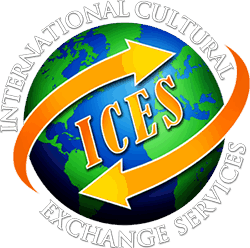Study Abroad Program FAQs
for American Students
Are you an American High School Student and considering studying abroad ? Here are the most common Study Abroad Program FAQs and answers.
Study Abroad Program FAQs
General
Learning a foreign language by being completely immersed in it will accelerate the learning process, and you will become fluent more quickly. As an American who can speak a second language, you will be a more desirable candidate in the job market. By embracing the exchange opportunity, you will gain a new perspective of the ever-changing global world in which we live.
Applying
Application documents include:
• Basic Information: family, interests, preferences, hobbies
• Teacher’s Recommendation
• School Transcripts (last 3 years)
• Medical History, Immunizations and Physician Release
• Personal Essay
• Photo Album
• Copy of Passport
Additional documents will be required depending on your country of choice.
Students attend classes in the local language, so previous experience with the language is certainly beneficial. As long as a student is putting in a genuine effort then they are likely to succeed in the program even if they did not possess extensive language skills prior to arriving. Teachers and pupils are often patient when working with American students, and they welcome the opportunity to help international students to broaden their horizons. We are also happy to connect students with tutors and other language support resources upon arrival if deemed necessary. Some countries offer students the opportunity to participate in an intensive language course or an immersion week before starting the program. These optional add-on programs are not included in the listed price.
Academics
Life Abroad
In most countries the host families are volunteer, though in others the custom is to pay a small stipend to contribute toward the cost of food and transportation. This stipend is already included in the program price.
Host families come from a variety of socioeconomic backgrounds and may consist of families with or without children, retired persons and even single parents. Host families may live in the suburbs of a city or in rural areas, but all of them share the desire to engage in a cultural exchange with our students.
The local coordinator will be in contact with you, your host family, and your school regularly to ensure that you are making the most of your experience abroad. They will be your first point-of-contact for any issues with the host family or school. In addition, the in-country office will have English-speaking staff who can assist you with any questions or issues that go beyond the local coordinator’s abilities.
The ICES office (including our 24-hour emergency line) is available to you and your parents throughout your experience.
Cost
- Round-trip international airfare
- Medical and travel insurance
- Student I.D. card
- Departure orientation
- Application fee
- Host family placement
- Local coordinator supervision
- Monthly report for parents
- Local country office support
- ICES office support
- Arrival orientation
Program Fees Do Not Include:
- Personal expenses (~ $300/month): clothes, toiletries, leisure activities, meals eaten outside of the host family home, even if with the host family, etc.
- School expenses: fees, uniforms, textbooks, school supplies, activities
- Tuition (for private school requests)
- Visa and immigration fees
- Transportation and travel within the host country
- Add-ons: trips offered by Partner, placement area guarantees
- Language tutoring
- Medical expenses and immunizations
